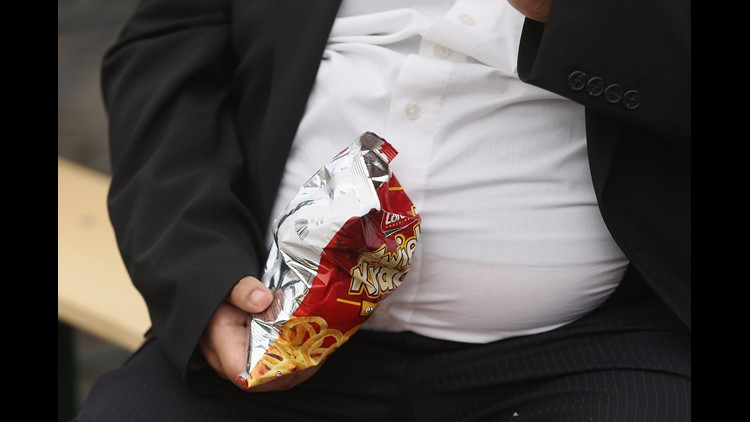Turkey, ham, stuffing and potatoes, five varieties of pie… It’s that time of year and many will be tempted with classic Thanksgiving dishes. This only happens once a year, so it’s best to get while the getting is good.


But if you’re anything like us the 10 pounds of holiday weight is a necessary evil in order to fully enjoy these Thanksgiving delicacies.
Some fitness blogs, like “The Intermittent Fasting Guide For Beginners” by Alison Moodie, suggests that eating only within a specific time period can be an effective way to lose weight. It’s a fitness theory that has been trending.
OSF Newsroom explains Intermittent Fasting as going for periods of time with low amounts or no calories.
One example of intermittent fasting is, if you go to bed at midnight having eaten until midnight the night of Thanksgiving and wake up at 8 a.m the dieter would not eat anything until 4 p.m the next day. Then eat only until midnight again and repeat.
The idea is that dieters can lose weight by taking in less food energy every day, according to Harvard Health Publishing. The theory is that by limiting calories the dieter ultimately decreases appetite and slows the body’s metabolism.
Ashley Simper, OSF HealthCare Registered Dietitian, said the fasting method has offered results, but it’s not necessarily better than a normal calorie-restricted diet, according to the OSF Newsroom.
A study by Harvard Health Publishing suggests that intermittent fasting holds some pitfalls. A research study showed that at the end of a 12-month study people who tried the diet didn’t fare any better than those using conventional calorie-cutting methods. Those who tried the fasting regimen had a high drop-out rate.
“It’s human nature for people to want to reward themselves after doing very hard work, such as exercise or fasting for a long period of time, so there is a danger of indulging in unhealthy dietary habits on non-fasting days,” says Dr. Frank Hu, chair of the department of nutrition at the Harvard T.H. Chan School of Public Health. Harvard’s research said there’s an urge to overeat after fasting periods, which can put appetite into overdrive.
Kathy McManus, director of the Department of Nutrition at Brigham and Women’s Hospital said she saw psychological benefits for some people.
“One of my patients felt strongly that he didn’t want to be bothered with tracking calories and filling out food records,” said McManus. “Instead, he opted for a 5:2 fasting approach, which has worked well for him so far.” She said the goal was to develop a healthy eating pattern that supports a sustainable diet over time.


According to Harvard Health, anyone considering a diet should discuss it with a doctor.
“Skipping meals and severely limiting calories can be dangerous for people with certain conditions, such as diabetes,” read the article.



